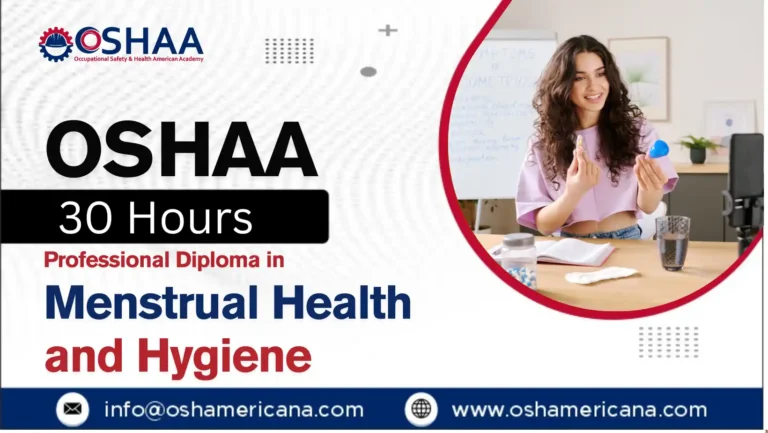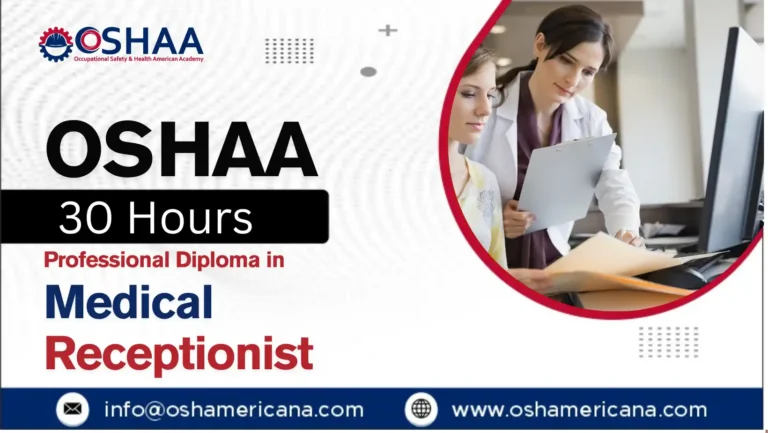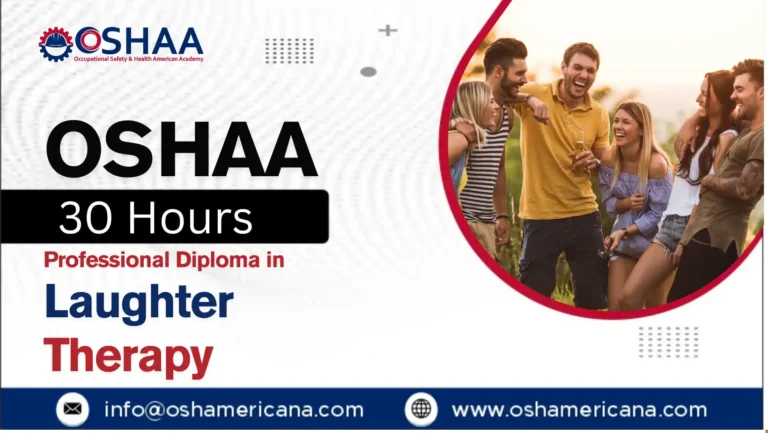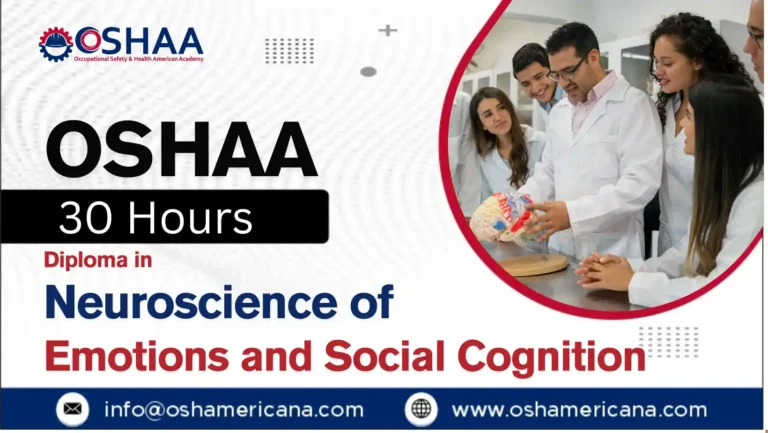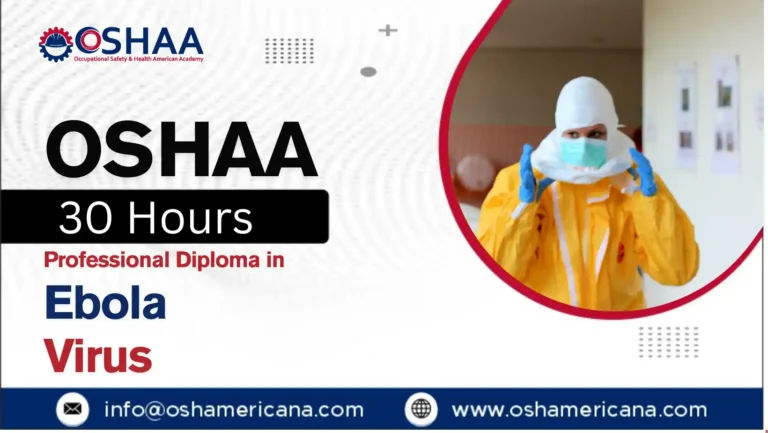Advance your skills in adult protection with the OSHAA 30-Hours Professional Diploma in Safeguarding Vulnerable Adults, ensuring compliance, safety, and professional excellence.
The OSHAA 30-Hours Professional Diploma in Safeguarding Vulnerable Adults is a comprehensive training program designed to equip health, social care, and support professionals with the essential knowledge and practical skills required to protect vulnerable adults. As the population ages and the number of individuals living with physical, cognitive, or mental health challenges increases, the demand for qualified professionals trained in safeguarding practices has never been greater. This course emphasizes the critical importance of recognizing, responding to, and preventing abuse or neglect, ensuring that learners can provide safe, effective, and legally compliant care.
The OSHAA 30-Hours Professional Diploma in Safeguarding Vulnerable Adults provides a detailed exploration of safeguarding principles, covering the identification of abuse, understanding neglect, and applying the legal and regulatory frameworks that govern adult protection. Participants will gain practical skills in risk assessment, intervention strategies, and reporting procedures, enabling them to create secure and supportive environments for adults at risk. The course also focuses on fostering a culture of vigilance, ethical responsibility, and professional accountability, empowering learners to implement best practices in diverse care settings.
Through the OSHAA 30-Hours Professional Diploma in Safeguarding Vulnerable Adults, learners will develop the competence to handle complex safeguarding situations confidently. The program is tailored for professionals working with elderly, disabled, or mentally vulnerable adults, providing guidance on how to approach sensitive cases with empathy and professionalism. By integrating theoretical knowledge with practical application, the course ensures participants understand their responsibilities under current safeguarding legislation and can apply these standards consistently in their workplace.
Completing the OSHAA 30-Hours Professional Diploma in Safeguarding Vulnerable Adults not only strengthens professional capabilities but also enhances organizational compliance, risk management, and service quality. The course equips learners with advanced skills to prevent harm, respond to incidents effectively, and promote wellbeing among vulnerable adults. By fostering expertise in safeguarding, this program helps professionals make a tangible impact on the safety, protection, and quality of life of those in their care, while also advancing their own career development and professional recognition in the field.
The OSHAA 30-Hours Professional Diploma in Safeguarding Vulnerable Adults is an essential qualification for anyone committed to promoting safety, compliance, and excellence in adult care. By completing this course, participants will gain a robust understanding of safeguarding practices, enhance their professional judgment, and contribute meaningfully to creating safer, more supportive environments for vulnerable individuals. This course ensures that healthcare and social care professionals are fully prepared to meet the challenges of safeguarding in modern care settings while upholding the highest standards of professionalism and ethical responsibility.
OSHAA 30-Hours Professional Diploma in Safeguarding Vulnerable Adults
To enroll in the OSHAA 30-Hours Professional Diploma in Safeguarding Vulnerable Adults, learners are expected to meet the following criteria:
Age Requirement
- Participants must be at least 18 years of age to enroll in the OSHAA 30-Hours Professional Diploma in Safeguarding Vulnerable Adults.
- This minimum age ensures that learners possess the maturity required to understand the responsibilities and sensitivities associated with safeguarding vulnerable adults.
- Age compliance aligns with professional standards in health and social care settings.
Educational Background
- Learners are recommended to have a minimum of a high school diploma or equivalent qualification to enroll in the OSHAA 30-Hours Professional Diploma in Safeguarding Vulnerable Adults.
- Individuals with higher education in social work, healthcare, psychology, or related fields will find an added advantage in understanding complex safeguarding concepts.
- A foundational education supports comprehension of regulatory frameworks, legal requirements, and practical care methodologies covered in the course.
Work Experience
- Prior professional experience in health, social care, or related support services is recommended but not mandatory for the OSHAA 30-Hours Professional Diploma in Safeguarding Vulnerable Adults.
- Those currently working with vulnerable adults will benefit from the practical application of safeguarding strategies taught in the course.
- Learners without prior experience can still gain comprehensive theoretical knowledge and develop essential skills for entering the safeguarding field confidently.
English Proficiency
- Participants must be able to read, write, and speak English proficiently to engage effectively with the OSHAA 30-Hours Professional Diploma in Safeguarding Vulnerable Adults course materials.
- Proficiency in English ensures understanding of legal, ethical, and regulatory guidelines integral to safeguarding practices.
- Clear communication skills are essential for reporting, documentation, and interaction with colleagues, clients, and stakeholders in professional safeguarding environments.
The OSHAA 30-Hours Professional Diploma in Safeguarding Vulnerable Adults is carefully structured to accommodate a wide range of learners while maintaining high standards of professional competence, legal compliance, and practical readiness. Meeting these eligibility requirements ensures participants can fully benefit from the course, acquire advanced safeguarding knowledge, and implement best practices confidently in their professional roles.
Study Units
Learning Outcomes
Introduction to Safeguarding Vulnerable Adults (2 Hours)
- Understand the concept and importance of safeguarding vulnerable adults.
- Identify individuals who are considered vulnerable and at risk.
- Recognise the role of professionals in safeguarding and protecting vulnerable adults.
- Learn the key principles and processes of safeguarding in various care settings.
Types of Abuse and Neglect (5 Hours)
- Identify and define the different types of abuse: physical, emotional, sexual, financial, and neglect.
- Recognise the signs and indicators of each type of abuse.
- Understand the impact of abuse on vulnerable adults and its long-term consequences.
- Learn how to detect subtle and hidden forms of abuse.
Legal and Regulatory Framework (5 Hours)
- Understand the key legislation related to safeguarding vulnerable adults, including the Care Act 2014 and Safeguarding Vulnerable Groups Act.
- Recognise the role of regulatory bodies, such as the Care Quality Commission (CQC), in safeguarding practices.
- Understand the responsibilities of professionals and organisations in ensuring compliance with safeguarding regulations.
- Learn about the legal duties and rights of vulnerable adults in the safeguarding process.
Identifying and Responding to Safeguarding Concerns (6 Hours)
- Recognise the early signs of abuse and neglect in vulnerable adults.
- Learn the steps to take when a safeguarding concern is identified.
- Understand the importance of reporting concerns promptly and appropriately.
- Gain skills in handling disclosures of abuse and providing support to affected individuals.
Risk Assessment and Management (3 Hours)
- Understand the principles and process of conducting safeguarding risk assessments.
- Learn how to identify potential risks and hazards to vulnerable adults.
- Develop strategies to mitigate risks and ensure the safety of individuals.
- Learn how to create care plans that address identified risks while promoting independence.
Safeguarding in Practice: Responding to Abuse (5 Hours)
- Understand best practices for responding to incidents of abuse or neglect.
- Learn how to support individuals who have been victims of abuse, ensuring their safety and wellbeing.
- Understand the role of multidisciplinary teams in addressing safeguarding concerns.
- Gain knowledge on investigating and taking appropriate actions when abuse is suspected.
Promoting a Safe Environment (4 Hours)
- Understand the importance of creating a safe and supportive environment for vulnerable adults.
- Learn the policies and practices that contribute to a safe care environment.
- Recognise how staff training and leadership can promote a culture of safety.
- Develop strategies to reduce risks and prevent abuse within care settings.
The OSHAA 30-Hours Professional Diploma in Safeguarding Vulnerable Adults provides participants with a comprehensive foundation in safeguarding practices, offering advanced skills and knowledge crucial for protecting vulnerable adults across health, social care, and support services. This course benefits professionals by equipping them with the expertise required to identify risks, prevent abuse or neglect, and ensure compliance with global safeguarding standards. The OSHAA 30-Hours Professional Diploma in Safeguarding Vulnerable Adults is designed to enhance professional development, improve organizational safety performance, and foster a culture of care, accountability, and legal compliance.
1. Enhanced Knowledge and Awareness
- Participants gain an in-depth understanding of the various forms of abuse and neglect affecting vulnerable adults.
- Learners develop the ability to recognize early warning signs and implement preventive strategies.
- The course strengthens knowledge of safeguarding frameworks, policies, and procedures essential for professional practice.
2. Regulatory Compliance and Legal Protection
- The OSHAA 30-Hours Professional Diploma in Safeguarding Vulnerable Adults ensures participants are well-versed in relevant legal and regulatory requirements.
- Professionals are empowered to comply with safeguarding laws and guidelines, minimizing legal risks for themselves and their organizations.
- Understanding statutory obligations supports organizations in meeting national and international safeguarding standards.
3. Improved Workplace Safety
- Participants learn strategies to create safe and protective environments for vulnerable adults.
- The course provides practical guidance on mitigating risks and implementing robust safeguarding policies.
- Organizations benefit from reduced incidents and enhanced trust among clients and stakeholders.
4. Professional Development and Career Advancement
- Completing the OSHAA 30-Hours Professional Diploma in Safeguarding Vulnerable Adults positions professionals as experts in safeguarding practice.
- Learners enhance their credentials, boosting employability and opportunities for career progression.
- The course demonstrates commitment to continuous learning and professional excellence.
5. Effective Risk Assessment and Management
- Professionals acquire skills to conduct thorough risk assessments in various care settings.
- Participants learn to prioritize risks, implement preventative measures, and develop action plans for potential safeguarding issues.
- Improved risk management enhances organizational preparedness and client safety.
6. Leadership and Management Skills
- The course equips participants with leadership abilities for guiding safeguarding initiatives.
- Professionals learn to mentor staff, oversee compliance, and foster a proactive safeguarding culture.
- Strengthened leadership contributes to better team performance and organizational reputation.
7. Enhanced Communication Skills
- Learners gain skills to communicate effectively with vulnerable adults, families, and colleagues regarding safeguarding concerns.
- Clear, empathetic communication supports the early identification of risks and encourages timely reporting.
- Professionals can advocate effectively for vulnerable adults and influence policy implementation.
8. Increased Efficiency and Operational Performance
- Participants are trained to streamline safeguarding processes and documentation.
- The OSHAA 30-Hours Professional Diploma in Safeguarding Vulnerable Adults provides practical strategies to integrate safeguarding into daily operations efficiently.
- Organizations benefit from improved workflow, reduced errors, and operational consistency.
9. Emergency Preparedness and Incident Response
- The course teaches best practices for responding to safeguarding incidents promptly and effectively.
- Professionals learn to implement immediate protective measures, report appropriately, and support victims.
- Preparedness enhances organizational resilience and minimizes harm.
10. Continuous Improvement and Innovation
- Participants are encouraged to evaluate safeguarding practices continuously and implement improvements.
- The course fosters innovative approaches to care and protection, keeping pace with evolving industry standards.
- Organizations adopting these strategies strengthen their commitment to high-quality care.
11. Worker Well-being and Productivity
- Professionals gain skills to support colleagues in managing safeguarding responsibilities.
- Awareness of safeguarding best practices reduces stress, enhances confidence, and promotes overall well-being.
- Productive and knowledgeable staff contribute to improved service delivery and organizational culture.
12. Multidisciplinary Collaboration
- The OSHAA 30-Hours Professional Diploma in Safeguarding Vulnerable Adults emphasizes collaboration between health, social care, and support teams.
- Participants learn to coordinate care plans, share information safely, and work with external agencies effectively.
- Strengthened collaboration improves outcomes for vulnerable adults and ensures comprehensive protection.
13. Ethical Practice and Accountability
- Professionals develop a strong ethical foundation in safeguarding, promoting integrity and accountability.
- The course instills principles of transparency, confidentiality, and client-centered care.
- Ethical practice enhances trust with clients, families, and stakeholders.
14. Enhanced Reputation and Organizational Trust
- By completing the OSHAA 30-Hours Professional Diploma in Safeguarding Vulnerable Adults, professionals contribute to the credibility of their organization.
- Strong safeguarding practices increase public confidence, stakeholder satisfaction, and professional recognition.
- Organizations demonstrate a commitment to high standards of care and compliance.
15. Global Relevance and Compliance
- The course aligns with international safeguarding standards and best practices.
- Professionals gain knowledge applicable across diverse care environments, ensuring consistency in protecting vulnerable adults worldwide.
- Organizations benefit from staff trained to uphold global regulatory expectations and industry excellence.
The OSHAA 30-Hours Professional Diploma in Safeguarding Vulnerable Adults provides unmatched professional benefits, from enhanced safeguarding knowledge to leadership, compliance, and operational effectiveness. By completing the OSHAA 30-Hours Professional Diploma in Safeguarding Vulnerable Adults, participants are empowered to deliver high-quality care, protect vulnerable adults, and contribute to safer, more ethical, and legally compliant organizational practices.
The OSHAA 30-Hours Professional Diploma in Safeguarding Vulnerable Adults is specifically designed for professionals who are responsible for the safety, well-being, and protection of vulnerable adults across healthcare, social care, and support services. The OSHAA 30-Hours Professional Diploma in Safeguarding Vulnerable Adults course is highly relevant to individuals and organizations committed to ensuring compliance with global safeguarding standards, improving operational safety, and advancing professional development. By enrolling in the OSHAA 30-Hours Professional Diploma in Safeguarding Vulnerable Adults program, participants gain the knowledge, skills, and practical expertise required to prevent abuse, respond effectively to safeguarding concerns, and maintain legally compliant practices.
1. Health and Social Care Managers
- Responsible for overseeing care services and ensuring staff adhere to safeguarding protocols.
- The course equips them to implement comprehensive safeguarding policies effectively.
- Enhances skills in risk management, compliance monitoring, and incident prevention.
- Supports OSHA compliance and strengthens overall organizational safety culture.
2. Care Home Supervisors
- Manage day-to-day operations in residential and nursing care facilities.
- Learn to identify, report, and prevent abuse or neglect of vulnerable adults.
- Gain expertise in staff training, supervision, and safeguarding program implementation.
- Improves operational efficiency while ensuring adherence to regulatory standards.
3. Healthcare Professionals
- Includes nurses, therapists, and allied health workers directly interacting with vulnerable adults.
- Understand legal responsibilities, safeguarding policies, and patient-centered care practices.
- Develops competencies in early intervention, risk assessment, and incident reporting.
- Reinforces professional credibility and compliance with global safeguarding standards.
4. Social Workers
- Engage with individuals and families to ensure protection and welfare of vulnerable adults.
- Enhance knowledge of safeguarding frameworks and multidisciplinary collaboration.
- Gain skills to conduct assessments, develop care plans, and manage safeguarding cases effectively.
- Strengthens the ability to uphold OSHA compliance and ethical care practices.
5. Support Staff and Care Assistants
- Provide hands-on support to vulnerable adults in various care settings.
- Learn to recognize warning signs of abuse or neglect and take appropriate action.
- Develop practical skills in safe care delivery, reporting, and communication.
- Contributes to a safer working environment and improved quality of care.
6. Regulatory and Compliance Officers
- Monitor and enforce adherence to safeguarding laws and organizational policies.
- Acquire expertise in evaluating safeguarding practices and implementing corrective actions.
- Enhance the ability to guide teams on compliance, risk reduction, and policy enforcement.
- Supports organizational integrity and regulatory compliance across all care services.
7. Policy Makers and Program Developers
- Design and implement safeguarding policies and community programs.
- Gain advanced knowledge on best practices, risk mitigation, and legal frameworks.
- Learn to create robust safeguarding strategies and evaluate program effectiveness.
- Strengthens organizational capacity to meet international safety and compliance standards.
8. Educators and Trainers in Health and Social Care
- Deliver training programs for care staff and professionals in safeguarding practices.
- Acquire up-to-date knowledge to educate learners effectively on abuse prevention and reporting.
- Develop skills to monitor training outcomes, mentor staff, and enhance workforce competence.
- Ensures alignment with OSHA guidelines and industry best practices.
9. Mental Health Practitioners
- Work with vulnerable adults experiencing mental health challenges.
- Understand the intersection of mental health care and safeguarding obligations.
- Learn strategies to manage risks, provide protective interventions, and maintain client safety.
- Reinforces ethical standards, professional practice, and compliance with regulatory requirements.
10. Community Support and Outreach Workers
- Engage with vulnerable adults in community and home care settings.
- Enhance abilities in monitoring, reporting, and responding to safeguarding concerns.
- Develop skills in collaborative care, crisis management, and client advocacy.
- Contributes to safer environments and supports organizations in achieving operational excellence.
The OSHAA 30-Hours Professional Diploma in Safeguarding Vulnerable Adults equips participants across all professional roles with the expertise, certifications, and practical skills needed to enhance safeguarding practices. By completing the OSHAA 30-Hours Professional Diploma in Safeguarding Vulnerable Adults course, professionals are empowered to protect vulnerable adults, ensure regulatory compliance, foster ethical and safe work environments, and contribute to operational excellence across healthcare, social care, and support organizations worldwide.


